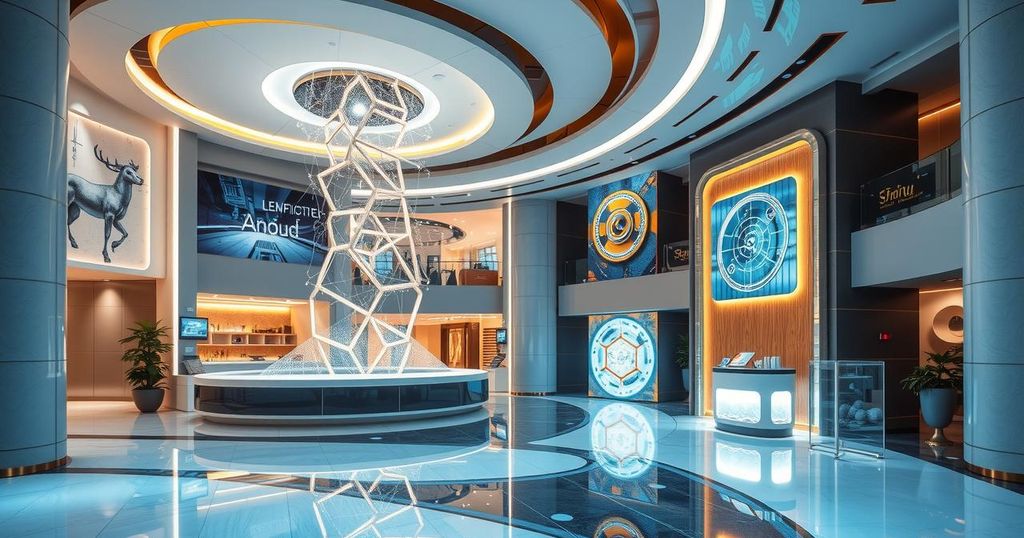Embracing Innovation: How Technology is Transforming the Hospitality Industry Today
The hospitality industry is experiencing a technology-driven transformation, with trends like AI, IoT, and automation reshaping guest experiences and operational efficiencies. Contactless services, VR marketing, and data analytics are vital for personalization and competitive advantage. Sustainability remains a priority as businesses embrace eco-friendly solutions, while the risks of resisting technological adoption grow, underscoring the importance of innovation in staying relevant.
The hospitality industry is on the verge of a technological renaissance, leveraging rapid advancements to reshape guest experiences and streamline operations. Innovations like artificial intelligence (AI), virtual reality (VR), and smart devices are revolutionizing hotels, resorts, and restaurants, unlocking new levels of personalization and efficiency. This exploration of technology trends reveals how they are redefining guest satisfaction and operational effectiveness.
Key trends include:
1. Artificial Intelligence (AI) and Machine Learning (ML): Beyond chatbots, AI is enhancing predictive analytics for demand forecasting and personalized experiences. It’s creating possibilities for hyper-personalized marketing and preparing hospitality providers to automate operations, drastically improving guest interactions by 2025.
2. Internet of Things (IoT): Smart technology is transforming how guests interact with accommodations, enabling personalized controls through connected devices. This trend pushes hospitality boundaries and highlights the need for adaptable solutions to meet diverse demands.
3. Contactless and Mobile Technology: The need for efficiency has accelerated the shift toward contactless services, as mobile apps empower guests to manage their experiences. This transformation supports a smoother journey from booking to checkout, addressing staff shortages while enhancing guest satisfaction.
4. Virtual and Augmented Reality: Immersive VR and AR experiences serve as powerful marketing tools to captivate potential guests. With increasing demand for unique stays, these technologies provide insightful previews, inviting guests to explore accommodations and attractions.
5. Robotics and Automation: Hotels are incorporating service robots to perform tasks efficiently, from cleaning to food delivery. Robotic integration is a strategic response to workforce challenges, ensuring high-quality service while enhancing the overall guest experience.
6. Data Analytics and Revenue Management: Data-driven strategies are pivotal for personalization and competitive pricing. By integrating advanced analytics and AI, hospitality businesses can accurately forecast demands and tailor services, enriching the guest journey.
7. Cybersecurity and Data Protection: As digital reliance grows, safeguarding guest data and implementing robust security measures is critical to maintaining trust. The complexity of interconnected hospitality systems demands comprehensive solutions for privacy protection.
8. Sustainability Technology: Sustainability technologies are gaining traction, addressing consumer demands for eco-friendly practices. AI innovations in energy and resource management align operational efficiencies with environmental consciousness.
Embracing these technology trends allows hospitality businesses to tackle modern challenges and enhance guest experiences. As we head toward 2025, integrating innovative solutions will be crucial for staying competitive in this ever-evolving landscape.
Benefits of Adopting New Technologies:
1. Personalized Guest Experiences: Technology elevates the hospitality sector by delivering customized services that anticipate guest needs, leading to increased satisfaction and loyalty. A significant majority of guests express interest in automated services and smart room controls.
2. Operational Efficiency and Savings: Robotics and automation streamline operations, reducing labor costs while reallocating human resources to core activities. Smart technologies optimize utilities, translating into savings that can benefit guests.
3. High-Quality Services: Leveraging data analytics, hotels can offer uniquely tailored experiences, creating meaningful connections with guests that enhance brand loyalty. Personalization is key to fostering repeat business.
4. Competitive Advantage: Strategic technology use boosts brand reputation and positions companies as modern leaders, attracting tech-savvy travelers. Innovations like digital keys symbolize convenience and set brands apart in a competitive market.
5. Sustainable Practices: Incorporating eco-friendly technologies strengthens brand identity and operational strategies while fulfilling growing consumer demands for sustainability. Smart solutions reduce environmental impacts and align with corporate responsibility goals.
Risks of Technology Resistance: Ignoring advancements in the hospitality sector can be detrimental. Companies may face inefficiencies, increased labor costs, and dissatisfaction among guests. Outdated systems hinder adaptability and creativity, threatening competitiveness and potentially diminishing brand loyalty. Keeping pace with technology is vital for long-term success in a shifting landscape.
Stay tuned for the next part of our series, which will delve deeper into disruptive advancements in hospitality technology and how to stay updated on emerging trends.
The hospitality industry is undergoing a profound transformation driven by the adoption of innovative technologies such as AI, IoT, and VR. These advancements not only enhance guest experiences through personalization and efficiency but are also essential for operational resilience in a competitive market. Embracing sustainability and technological adaptation is key to navigating future challenges, ensuring both guest satisfaction and long-term success.
Original Source: www.hospitalitynet.org




Post Comment